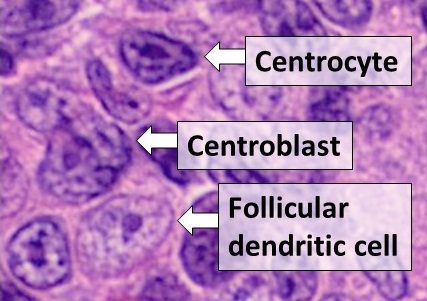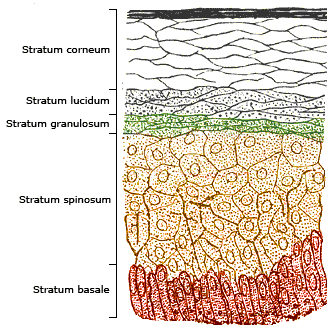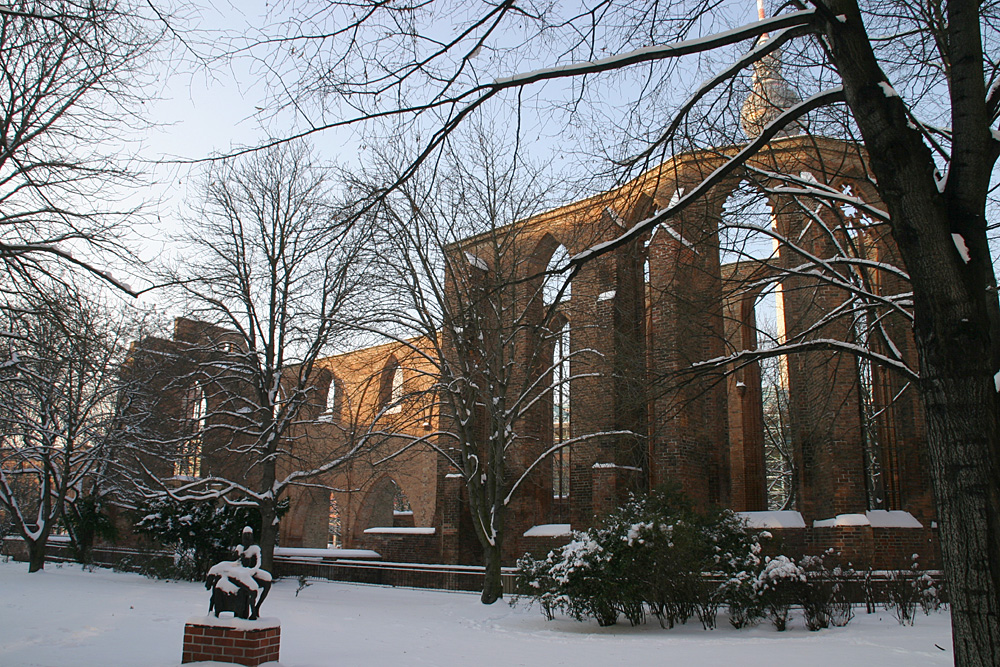|
Paul Langerhans
Paul Langerhans (25 July 1847 – 20 July 1888) was a German pathologist, physiologist and biologist, credited with the discovery of the cells that secrete insulin, named after him as the islets of Langerhans. Eponymous terms * Islets of Langerhans – Pancreatic cells which include insulin-producing cells. Langerhans discovered these cells during his studies for his doctorate at the Berlin Pathological Institute in 1869. * Langerhans cells – Skin cells concerned with the immune response and which sometimes contain Langerhans granules. In 1868, Langerhans used the technique taught to him by Julius Friedrich Cohnheim to stain a sample of human skin with gold chloride and identified the cells which bear his name. From their appearance, Langerhans believed they were nerve cells. However they are a form of macrophages that were originally thought to be dendritic cells due to their morphology. * Layer of Langerhans – In the same paper in which he described Langerhans cells, he d ... [...More Info...] [...Related Items...] OR: [Wikipedia] [Google] [Baidu] |
Pathologist
Pathology is the study of the causal, causes and effects of disease or injury. The word ''pathology'' also refers to the study of disease in general, incorporating a wide range of biology research fields and medical practices. However, when used in the context of modern medical treatment, the term is often used in a narrower fashion to refer to processes and tests that fall within the contemporary medical field of "general pathology", an area which includes a number of distinct but inter-related medical specialties that diagnose disease, mostly through analysis of tissue (biology), tissue, human cell, cell, and body fluid samples. Idiomatically, "a pathology" may also refer to the predicted or actual progression of particular diseases (as in the statement "the many different forms of cancer have diverse pathologies", in which case a more proper choice of word would be "Pathophysiology, pathophysiologies"), and the affix ''pathy'' is sometimes used to indicate a state of disease ... [...More Info...] [...Related Items...] OR: [Wikipedia] [Google] [Baidu] |
Dendritic Cells
Dendritic cells (DCs) are antigen-presenting cells (also known as ''accessory cells'') of the mammalian immune system. Their main function is to process antigen material and present it on the cell surface to the T cells of the immune system. They act as messengers between the innate and the adaptive immune systems. Dendritic cells are present in those tissues that are in contact with the external environment, such as the skin (where there is a specialized dendritic cell type called the Langerhans cell) and the inner lining of the nose, lungs, stomach and intestines. They can also be found in an immature state in the blood. Once activated, they migrate to the lymph nodes where they interact with T cells and B cells to initiate and shape the adaptive immune response. At certain development stages they grow branched projections, the ''dendrites'' that give the cell its name (δένδρον or déndron being Greek for 'tree'). While similar in appearance, these are structures disti ... [...More Info...] [...Related Items...] OR: [Wikipedia] [Google] [Baidu] |
Humboldt University Of Berlin
Humboldt-Universität zu Berlin (german: Humboldt-Universität zu Berlin, abbreviated HU Berlin) is a German public research university in the central borough of Mitte in Berlin. It was established by Frederick William III on the initiative of Wilhelm von Humboldt, Johann Gottlieb Fichte and Friedrich Ernst Daniel Schleiermacher as the University of Berlin () in 1809, and opened in 1810, making it the oldest of Berlin's four universities. From 1828 until its closure in 1945, it was named Friedrich Wilhelm University (german: Friedrich-Wilhelms-Universität). During the Cold War, the university found itself in East Berlin and was ''de facto'' split in two when the Free University of Berlin opened in West Berlin. The university received its current name in honour of Alexander and Wilhelm von Humboldt in 1949. The university is divided into nine faculties including its medical school shared with the Freie Universität Berlin. The university has a student enrollment of around 32 ... [...More Info...] [...Related Items...] OR: [Wikipedia] [Google] [Baidu] |
Epidermis (skin)
The epidermis is the outermost of the three layers that comprise the skin, the inner layers being the dermis and hypodermis. The epidermis layer provides a barrier to infection from environmental pathogens and regulates the amount of water released from the body into the atmosphere through transepidermal water loss. The epidermis is composed of multiple layers of flattened cells that overlie a base layer (stratum basale) composed of columnar cells arranged perpendicularly. The layers of cells develop from stem cells in the basal layer. The human epidermis is a familiar example of epithelium, particularly a stratified squamous epithelium. The word epidermis is derived through Latin , itself and . Something related to or part of the epidermis is termed epidermal. Structure Cellular components The epidermis primarily consists of keratinocytes ( proliferating basal and differentiated suprabasal), which comprise 90% of its cells, but also contains melanocytes, Langerhans c ... [...More Info...] [...Related Items...] OR: [Wikipedia] [Google] [Baidu] |
Undergraduate Education
Undergraduate education is education conducted after secondary education and before postgraduate education. It typically includes all postsecondary programs up to the level of a bachelor's degree. For example, in the United States, an entry-level university student is known as an ''undergraduate'', while students of higher degrees are known as ''graduate students''. Upon completion of a number of required and elective course (education), courses as part of an undergraduate program, the student would earn the corresponding undergraduate degree, degree. (In some regions, individual "courses" and the "program" collection are given other terms, such as "units" and "course", respectively.) In some other educational systems, undergraduate education is Higher education, postsecondary education up to the level of a master's degree; this is the case for some science courses in Britain and some medicine courses in Europe. Programs Africa Nigerian system In Nigeria, undergraduate degrees ... [...More Info...] [...Related Items...] OR: [Wikipedia] [Google] [Baidu] |
Lymph Node
A lymph node, or lymph gland, is a kidney-shaped organ of the lymphatic system and the adaptive immune system. A large number of lymph nodes are linked throughout the body by the lymphatic vessels. They are major sites of lymphocytes that include B and T cells. Lymph nodes are important for the proper functioning of the immune system, acting as filters for foreign particles including cancer cells, but have no detoxification function. In the lymphatic system a lymph node is a secondary lymphoid organ. A lymph node is enclosed in a fibrous capsule and is made up of an outer cortex and an inner medulla. Lymph nodes become inflamed or enlarged in various diseases, which may range from trivial throat infections to life-threatening cancers. The condition of lymph nodes is very important in cancer staging, which decides the treatment to be used and determines the prognosis. Lymphadenopathy refers to glands that are enlarged or swollen. When inflamed or enlarged, lymph nodes can be ... [...More Info...] [...Related Items...] OR: [Wikipedia] [Google] [Baidu] |
Pancreas
The pancreas is an organ of the digestive system and endocrine system of vertebrates. In humans, it is located in the abdomen behind the stomach and functions as a gland. The pancreas is a mixed or heterocrine gland, i.e. it has both an endocrine and a digestive exocrine function. 99% of the pancreas is exocrine and 1% is endocrine. As an endocrine gland, it functions mostly to regulate blood sugar levels, secreting the hormones insulin, glucagon, somatostatin, and pancreatic polypeptide. As a part of the digestive system, it functions as an exocrine gland secreting pancreatic juice into the duodenum through the pancreatic duct. This juice contains bicarbonate, which neutralizes acid entering the duodenum from the stomach; and digestive enzymes, which break down carbohydrates, proteins, and fats in food entering the duodenum from the stomach. Inflammation of the pancreas is known as pancreatitis, with common causes including chronic alcohol use and gallstones. Becaus ... [...More Info...] [...Related Items...] OR: [Wikipedia] [Google] [Baidu] |
University Of Jena
The University of Jena, officially the Friedrich Schiller University Jena (german: Friedrich-Schiller-Universität Jena, abbreviated FSU, shortened form ''Uni Jena''), is a public research university located in Jena, Thuringia, Germany. The university was established in 1558 and is counted among the ten oldest universities in Germany. It is affiliated with six Nobel Prize winners, most recently in 2000 when Jena graduate Herbert Kroemer won the Nobel Prize for physics. In the 2023 Times Higher Education World University Rankings, the university was awarded 189th place in the world. It was renamed after the poet Friedrich Schiller who was teaching as professor of philosophy when Jena attracted some of the most influential minds at the turn of the 19th century. With Karl Leonhard Reinhold, Johann Gottlieb Fichte, G. W. F. Hegel, F. W. J. Schelling and Friedrich Schlegel on its teaching staff, the university was at the centre of the emergence of German idealism and early Romanti ... [...More Info...] [...Related Items...] OR: [Wikipedia] [Google] [Baidu] |
Evangelisches Gymnasium Zum Grauen Kloster
The Evangelisches Gymnasium zum Grauen Kloster, located in suburban Schmargendorf, Berlin, is an independent school with a humanistic profile, known as one of the most prestigious schools in Germany. Founded by the Evangelical Church in West Berlin in 1949 as the Evangelisches Gymnasium, it continues the traditions of the ancient Berlinisches Gymnasium zum Grauen Kloster, the oldest Gymnasium in Berlin, which for hundreds of years was situated in former monastery buildings in the city's Mitte district, closed by the East Germans in 1958. In 1963 the Evangelisches Gymnasium of West Berlin adopted its traditions and added "zum Grauen Kloster" to its name. Curriculum The Evangelisches Gymnasium zum Grauen Kloster is one of the last schools in Berlin offering the entire range of classical education with Latin and Ancient Greek as compulsory subjects. The students learn foreign languages in this order: English (year 5), Latin (year 5), Ancient Greek (year 8), French (year 9 optional) ... [...More Info...] [...Related Items...] OR: [Wikipedia] [Google] [Baidu] |
Physician
A physician (American English), medical practitioner (Commonwealth English), medical doctor, or simply doctor, is a health professional who practices medicine, which is concerned with promoting, maintaining or restoring health through the study, diagnosis, prognosis and treatment of disease, injury, and other physical and mental impairments. Physicians may focus their practice on certain disease categories, types of patients, and methods of treatment—known as specialities—or they may assume responsibility for the provision of continuing and comprehensive medical care to individuals, families, and communities—known as general practice. Medical practice properly requires both a detailed knowledge of the academic disciplines, such as anatomy and physiology, underlying diseases and their treatment—the ''science'' of medicine—and also a decent competence in its applied practice—the art or ''craft'' of medicine. Both the role of the physician and the meaning ... [...More Info...] [...Related Items...] OR: [Wikipedia] [Google] [Baidu] |
Berlin
Berlin ( , ) is the capital and largest city of Germany by both area and population. Its 3.7 million inhabitants make it the European Union's most populous city, according to population within city limits. One of Germany's sixteen constituent states, Berlin is surrounded by the State of Brandenburg and contiguous with Potsdam, Brandenburg's capital. Berlin's urban area, which has a population of around 4.5 million, is the second most populous urban area in Germany after the Ruhr. The Berlin-Brandenburg capital region has around 6.2 million inhabitants and is Germany's third-largest metropolitan region after the Rhine-Ruhr and Rhine-Main regions. Berlin straddles the banks of the Spree, which flows into the Havel (a tributary of the Elbe) in the western borough of Spandau. Among the city's main topographical features are the many lakes in the western and southeastern boroughs formed by the Spree, Havel and Dahme, the largest of which is Lake Müggelsee. Due to its l ... [...More Info...] [...Related Items...] OR: [Wikipedia] [Google] [Baidu] |
Paul Langerhans Student
Paul may refer to: *Paul (given name), a given name (includes a list of people with that name) * Paul (surname), a list of people People Christianity *Paul the Apostle (AD c.5–c.64/65), also known as Saul of Tarsus or Saint Paul, early Christian missionary and writer * Pope Paul (other), multiple Popes of the Roman Catholic Church * Saint Paul (other), multiple other people and locations named "Saint Paul" Roman and Byzantine empire * Lucius Aemilius Paullus Macedonicus (c. 229 BC – 160 BC), Roman general * Julius Paulus Prudentissimus (), Roman jurist * Paulus Catena (died 362), Roman notary *Paulus Alexandrinus (4th century), Hellenistic astrologer * Paul of Aegina or Paulus Aegineta (625–690), Greek surgeon Royals *Paul I of Russia (1754–1801), Tsar of Russia *Paul of Greece (1901–1964), King of Greece Other people *Paul the Deacon or Paulus Diaconus (c. 720 – c. 799), Italian Benedictine monk *Paul (father of Maurice), the father of Maurice ... [...More Info...] [...Related Items...] OR: [Wikipedia] [Google] [Baidu] |

.jpg)




.jpg)




